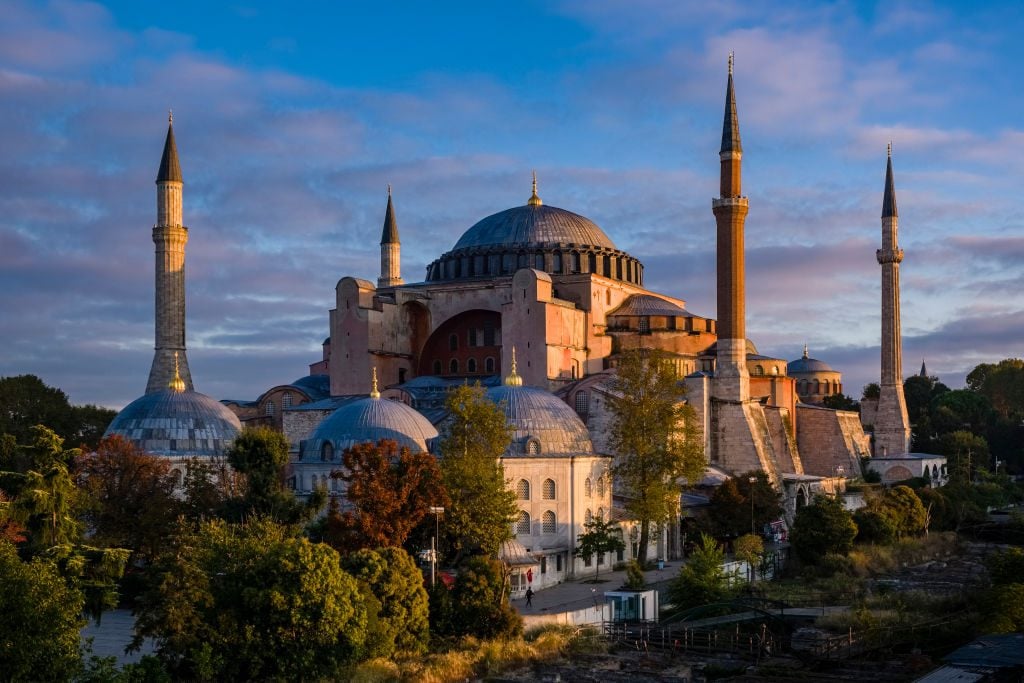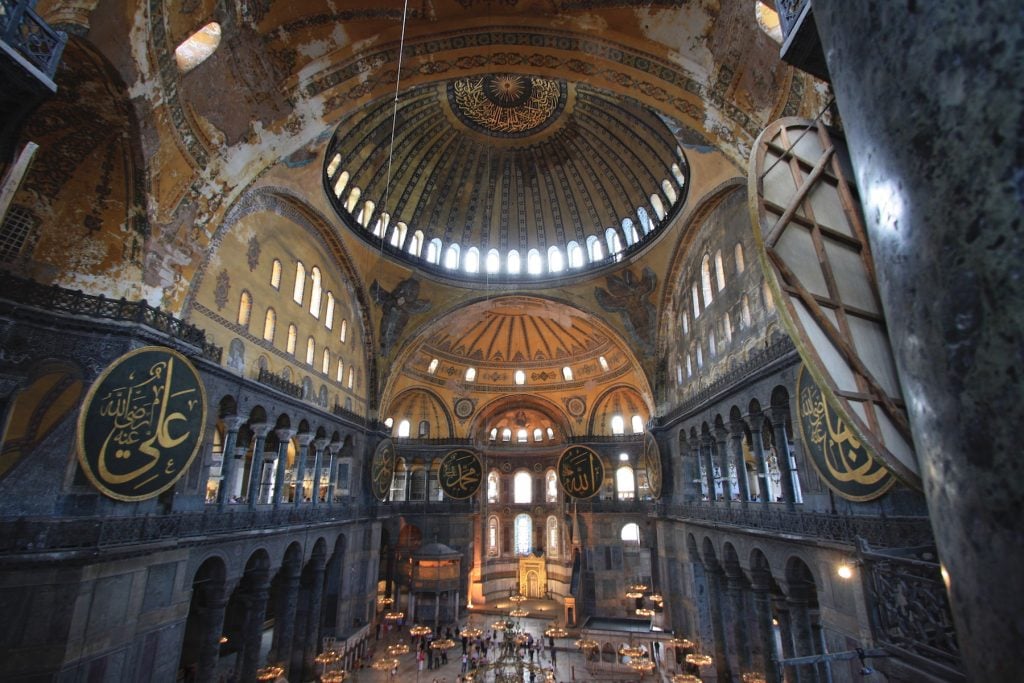Art World
Could the Hagia Sophia Lose Its 80-Year-Old Status as a Museum? A Top Court in Turkey Will Decide
Politicians and scholars from around the world have expressed alarm at the possible ruling.

Politicians and scholars from around the world have expressed alarm at the possible ruling.

Kate Brown

It is one of the great wonders of the world, an iconic building on the Bosporus Strait, at the intersection between the East and West, Christianity and Islam. The monumental sixth-century Hagia Sophia in Istanbul, Turkey has gone through many transformations through the millennia but now, another major change could be underway. President Recep Tayyip Erdoğan is seeking to turn the world-famous UNESCO site from a museum into an active mosque again.
The conservative leader is pushing hard to reverse a decision taken by the founder of the Turkish Republic, Ataturk, in 1935 to make the Hagia Sophia a secular historical site. Today, July 3, Turkey’s highest administrative court, the Council of the State, was to decide if the decree that the Hagia Sophia is a museum is still legally valid. After a 17 minute hearing, the court announced it would reveal its verdict in 15 days.
The site is visited by one million people annually. The spectacular building was erected by the Byzantine Emperor Justinian when Istanbul was Constantinople in the sixth century A.D. The Ottomans converted the church into a mosque when they conquered the city in 1453.

Interior of the Hagia Sophia. Photo by Sudharsan Narayanan, via Flickr.
The walls tell the story. There are Christian mosaics of Jesus, the Virgin Mary, and Saint John seen on the ceiling not far from medallions bearing the names of Allah, the prophet Muhammad, and the four Caliphs. Many see the church as a symbol of interfaith understanding.
Since it was converted into a museum in the 1930s, no religious rituals have been permitted to be held there. Devout Muslims have long been pushing for this decision to be reversed.
US secretary of state Mike Pompeo released a statement from his department citing his disapproval to the move, asking Erdogan to reconsider. “The United States views a change in the status of the Hagia Sophia as diminishing the legacy of this remarkable building and its unsurpassed ability—so rare in the modern world—to serve humanity as a much-needed bridge between those of differing faith traditions and cultures,” it stated. “We seek to continue to work with the Government of Turkey on a broad range of issues of mutual interest, including the preservation of religious and cultural sites.”
Turkey immediately shot back at Pompeo. “We are astonished by the press release issued by the US Department of State on the status of the Hagia Sophia,” said Turkish Foreign Ministry spokesman Hami Aksoy in a statement. “On this occasion, we remind once again [sic] a reality that we have to repeat constantly. The Hagia Sophia is the property of Turkey, like all our cultural assets located on our land.”
The church was originally Greek Orthodox, and Greek religious and political officials also announced opposition to the move. “Hagia Sophia is a world heritage monument,” said Greek government spokesperson Stelios Petsas, according to Reuters. “[It] would create a huge emotional chasm between the Christians of the world and Turkey.”
An open letter published today, signed by dozens of international experts in Ottoman and Byzantine art, also decried the initiative to reverse the site’s museum status as endangering the stewardship of the site: “Hagia Sophia is too beautiful a monument and too precious a historical document to serve as a pawn in regional politics.”